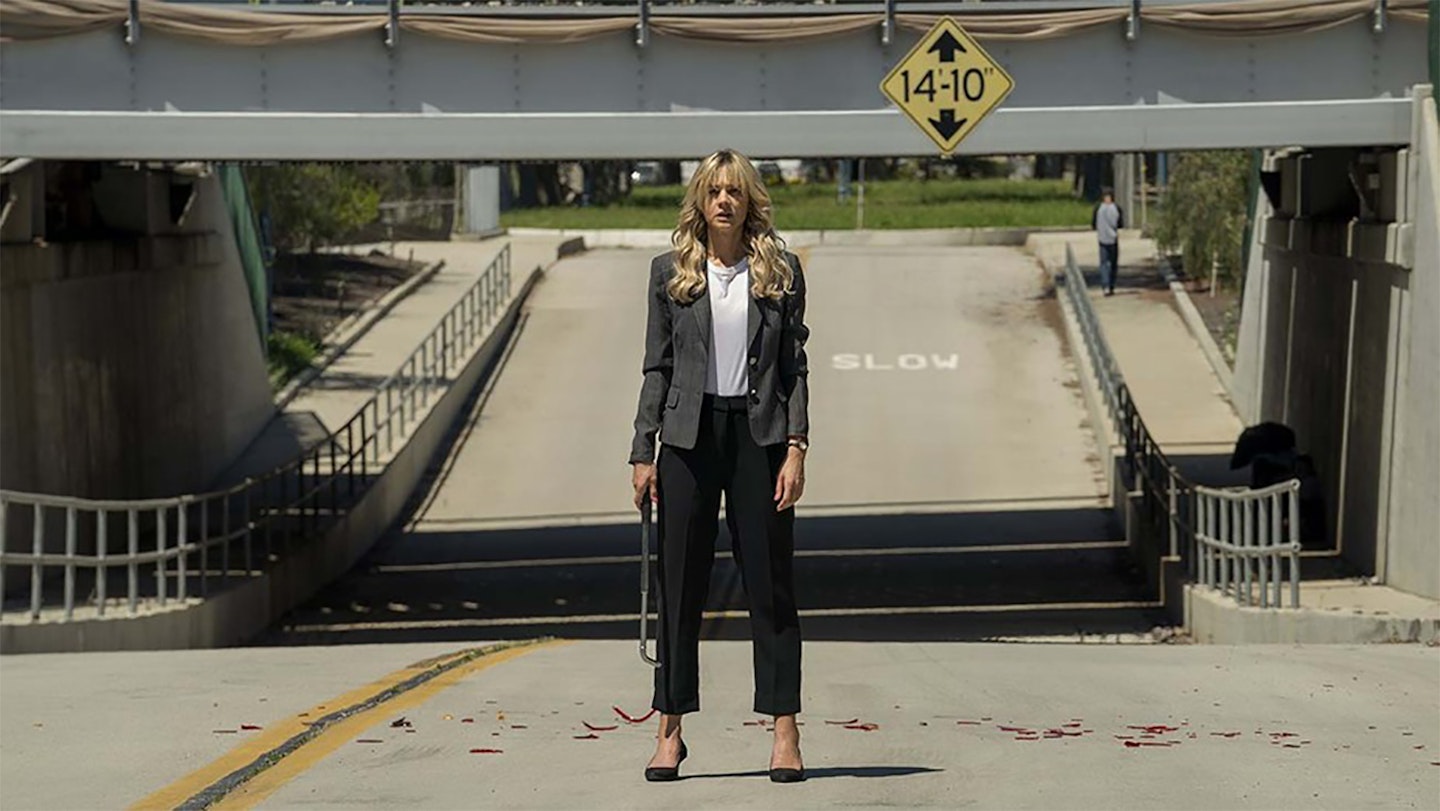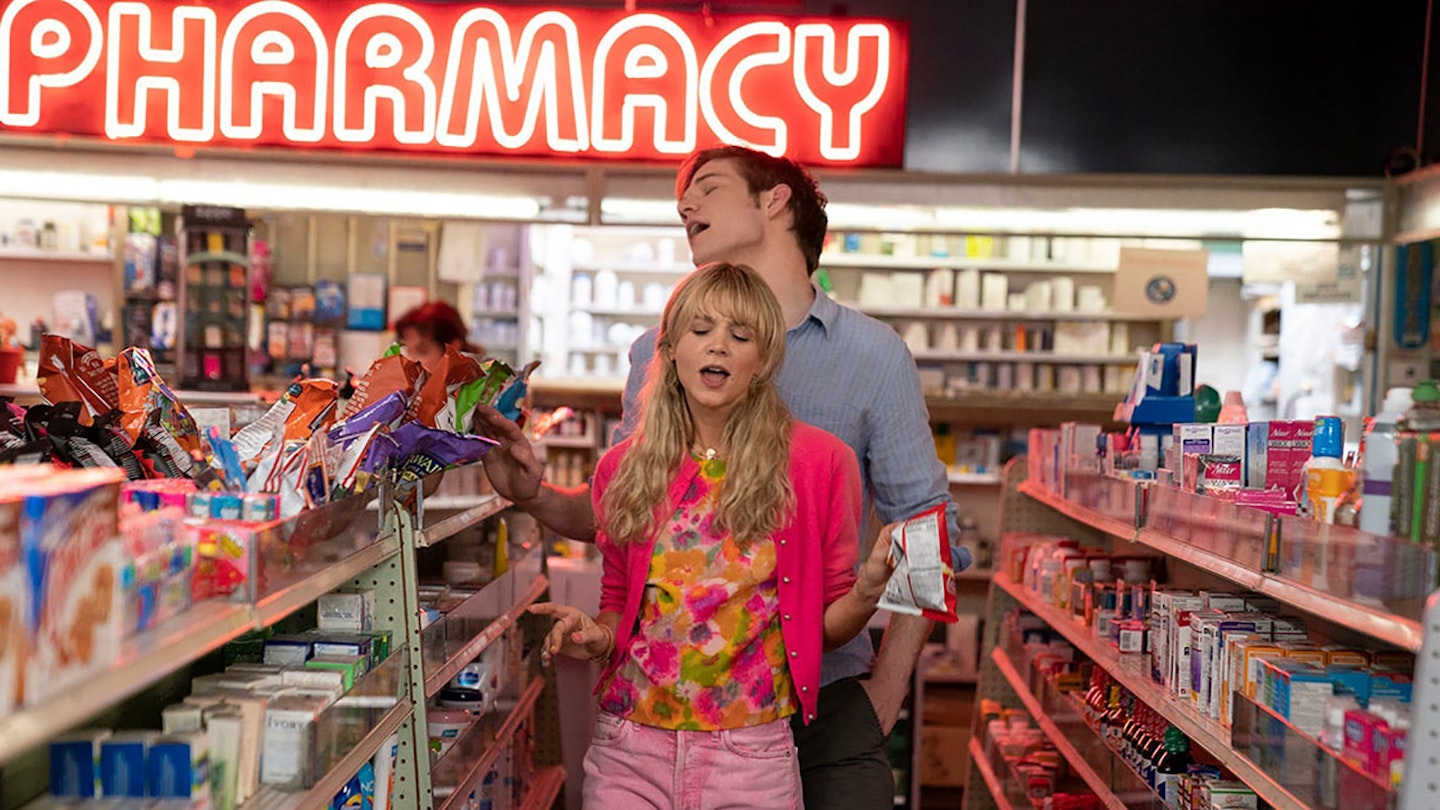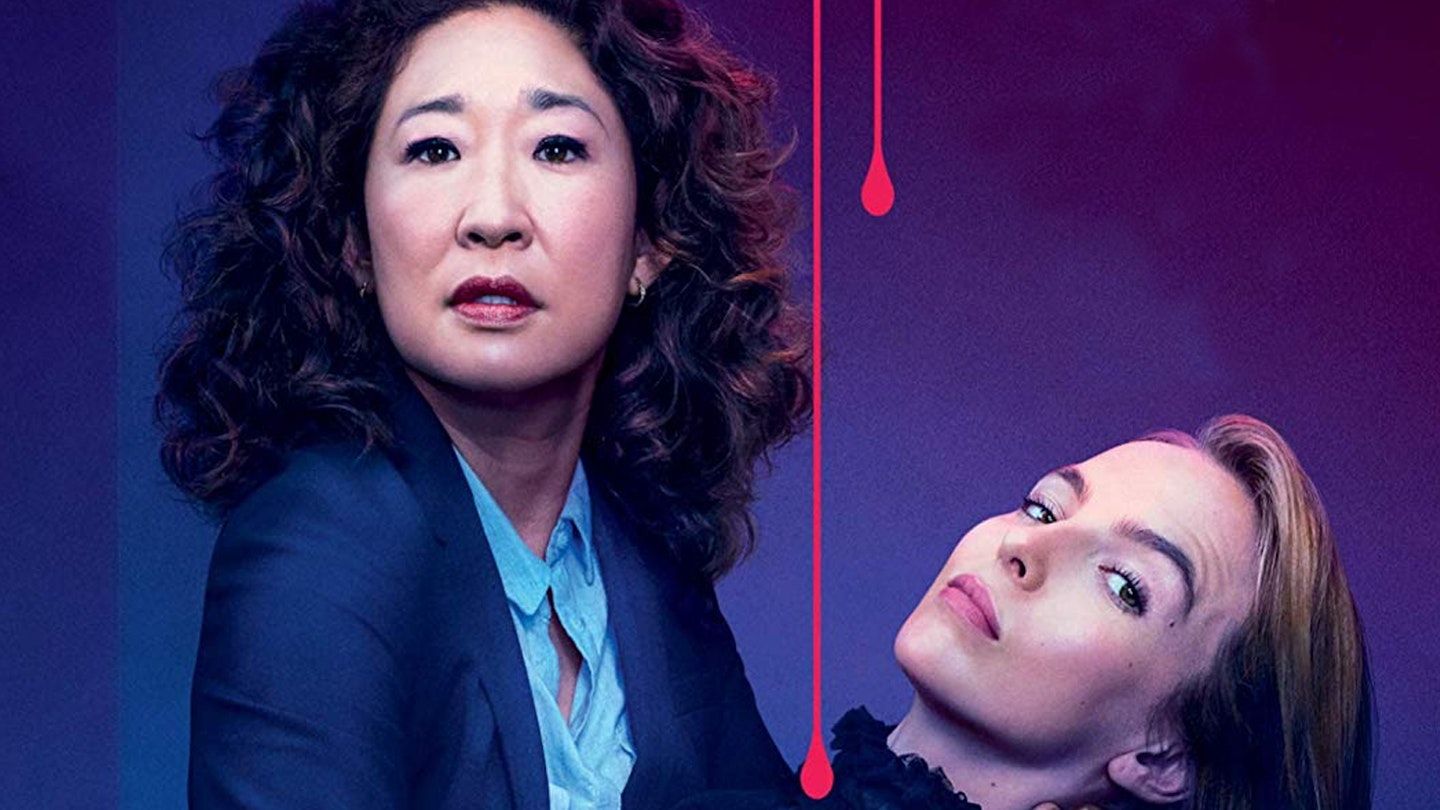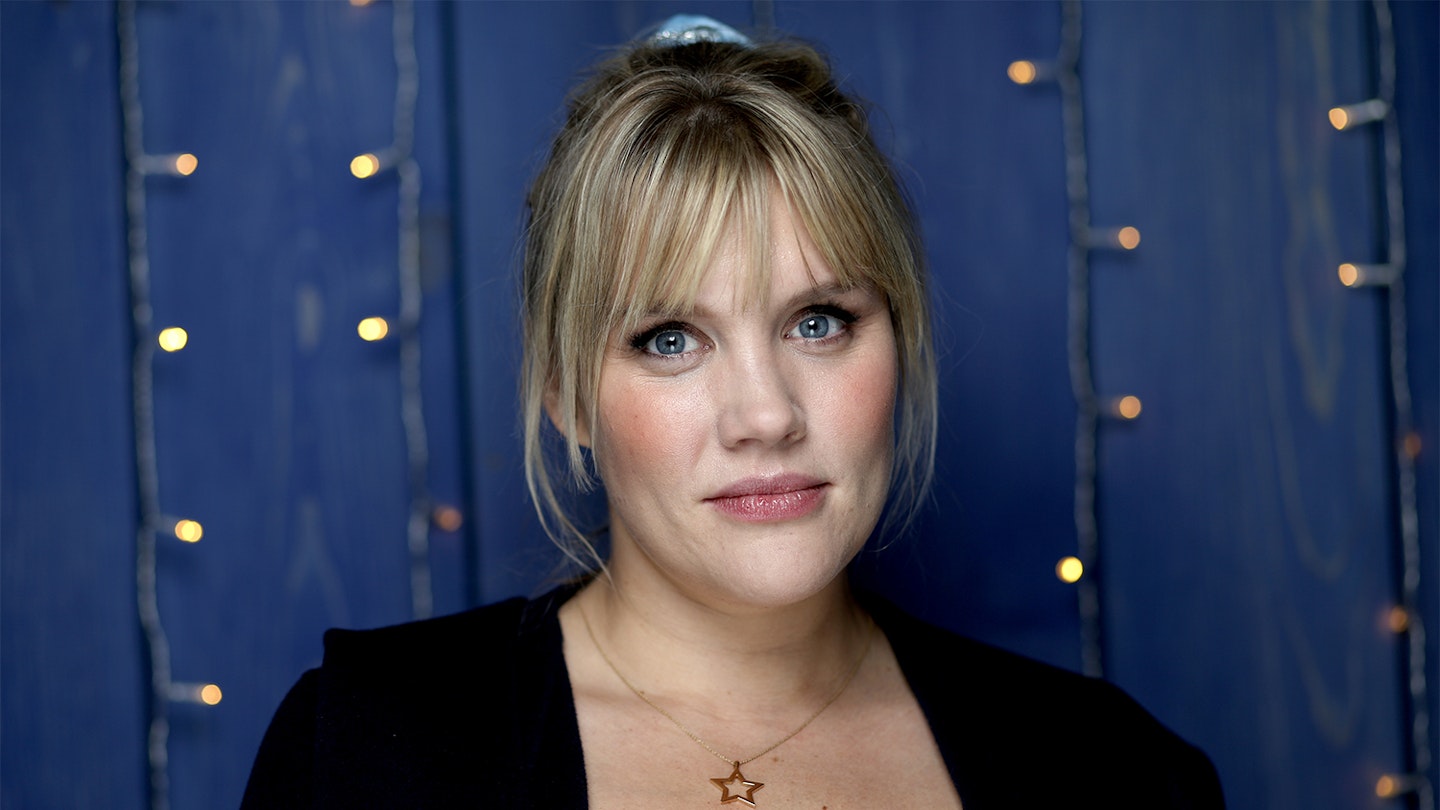With Promising Young Woman finally being released in the UK this week – and less than two weeks before the Oscars, where the film received five nominations – everyone is talking about writer-director Emerald Fennell. To celebrate the arrival of one of the most daring films of the year, read Empire's interview with Fennell, conducted just days before the film's world premiere at the 2020 Sundance Film Festival – talking about female villains, nice guys, and her fascination with frightening women.
When Empire meets Emerald Fennell, it’s just ten short days until the premiere of the director-actor-showrunner-author-Christ-woman-we’re-running-out-of-hyphens’ debut feature film at Sundance. Today, she’s in London, but as this is being written she’s in Park City, having just set it buzzing with the Carey Mulligan-starring, Margot Robbie-produced Promising Young Woman — her revenge thriller/horror/romcom with Mulligan in an entirely un-Mulligan role as Cassie, a young woman hell-bent on settling scores. Until maybe she isn’t. “Ballsy” and “brave” were the most commonly tossed-out adjectives to describe what had just screened. Both pretty apt adjectives, once you’ve spent a jot of time in Emerald Fennell’s company.
You might know her name from her show-running the second season of Killing Eve. You might know her face from her playing Camilla Shand in the third and fourth season of The Crown. You might know her voice from her YA novel, Shiverton Hall. If you don’t know her at all, get ready to have that corrected. For the multi-hyphenate, multi-threat Fennell has made a film that is nothing like you expect, strident in its originality and, frankly, completely bonkers for a first piece of work. We really want to know what she was thinking.
Was this the very first idea you had for a feature script?
No, but it was the first one that I’d the opportunity to write, because LuckyChap [Margot Robbie’s production company] bought it when they did. What was amazing, both psychologically and financially, was that I was able to really set the time aside to do it. And in terms of the idea, the films I love are very unusual. I like thrillers. I like twisty-turnies. Story-driven, character-driven, but also entertaining. I really wanted to make a female revenge movie about what it would like if a woman actually did want to take revenge.

In the trailer and the opening scene, we see ‘nice guy’ Adam Brody taking advantage of Cassie — and then you assume she’s done something really awful to him…
It depends on your interpretation of it and what she’s doing. When we talk about this stuff [#MeToo], we always talk about the most extreme stuff. The most difficult, the most obvious. It’s not like that. Every woman I know — lots of men I know too, but every woman in particular — knows it’s so much more complicated. And what we grew up with, particularly our generation, was stuff that was more like an anecdote that we made out of things that were terrible. Often [done] by people we all really like. And mostly by people who never, in a million years, would think of themselves as bad people — and in the wider frame of the world are not bad people. The point I started from was the conversations that happen when people experience the same thing and come away with very different ideas of what’s happened. And that’s what this film is. It’s a kind of a whodunnit. It’s a kind of, “What happened?” But nobody — and this is really crucial — is lying, and nobody thinks they’re a bad person and everyone’s kind of right in a way.
It’s being called a #MeToo movie, but as you say, it’s much more about the difference in perspective — between men and women but also between women and women…
I said to all of the actors and actresses — and I say that for clarity — you have to come at this as a person who believes you are absolutely right. Don’t come at this thinking you’re a douchebag or a monster or a bad feminist. When I was pitching it and making it, it was like Cassie is the avenging angel, [but] I think everything is forgivable. Almost everything, within reason. But two things are crucial, and those things go back to any religion or any philosophy, which is to acknowledge and apologise. And if you don’t, then that’s when it can’t be forgotten. That’s the problem, and I think this is so common — people want forgiveness without the acceptance that what they did was wrong. And I think for most people who’ve been through any kind of — particularly this sort of thing, but any kind of — trauma, it’s often not the thing itself, it’s being made insane. We’ve been taught to think, “Oh, I’ve probably misinterpreted.” And so really, this is a film about saying… If we’re talking about our revenge story and we’re talking about an avenging angel, she’s coming with two options. One is forgiveness that comes with repentance, or, “If you don’t see your fault, I’ll show it to you.”
Nobody thinks they’re a bad person and everyone’s kind of right in a way.
Was it important to look at the complicity of all of us?
The truth is interesting, and the truth is, we’re all up to our necks in it. And that’s across the board. There are all types of hypocrisy, all kinds of cruelty. Parasite was so unbelievably effective because it made us all re-evaluate the way our system works and how cruel it is and how cruel we are. Get Out was so effective — and unbelievable genius — because, again, it made everyone [re-evaluate]. That’s where horror can be so effective and that’s why, I think, these films often are horrors because it is horrifying. It sounds very trite, but we’re all horrifying, and there’s nothing worse than having to go back and look in the past.
Is that one of the reasons horrors and thrillers are having such a moment, because in society, politically…
We’re fucked.
Yeah. Essentially.
There are two things happening at the same time, right? There are seismic changes happening towards progress and then the complete opposite — backtracking, regression. People seem to have a double horror: the horror of the monsters and of being the monster. Because we live in a world now where you can be a monster without knowing. You can be a monster because you believe the wrong thing and then we monster the people who don’t feel the same way. So those of us who are very liberal and wanting a better society, a more egalitarian society, we’re just as frightened of ourselves and each other as we are of the people who are very right wing.

I wanted to talk about your soundtrack choices. I was quite shocked when Paris Hilton dropped…
As part of pitching the movie and getting Film Nation and Focus Features on board, I sent a Spotify playlist. And I sent endless, probably relentless mood boards because it’s really hard to communicate the feel of something from a script when it’s this kind of script. The films that I love, from Clueless to To Die For, they have a deceptively, bubbly front, which means they can be more satirical and dark. And also, I like girl shit and I think that often it’s used ironically. And that’s often the thought of, “Well, then you’re not serious,” but for me, I wanted to start from a point of saying, “I want this music in there, I want these clothes in here. Do not mistake that for silliness or irony. I’m not being ironic. This is stuff I think is good and I love it and I think ‘Toxic’ is a masterpiece and ‘Stars Are Blind’ is incredibly romantic and of its own time and a shorthand for something amazing.”
Can you talk about the writing process? The screenplay is very funny and very close to the bone — there’s a single, spectacular use of “cunt”.
Thank you! I really fought for that.
Did you get a ton of notes?
The thing is that I’ve been sitting with it for such a long time and it was in my head for so long and I handed it in as it kind of is now. There were bits and bobs that changed but really, the reason that it was such a pleasurable process is that everyone was just all in. Also, it was very low-budget and we shot it in 23 days, so it meant we had to be nimble. This isn’t a $100 million movie, it’s not even a $10 million movie. And so, you can say, “I want to take this risk and I think it’ll pay off and if it doesn’t, sorry.” The great thing about Focus is that they make films like this and they take chances on people like me. They gave me a chance and they really trusted me and I’m so grateful that they did, because they really could have told me to fuck off. [And] LuckyChap were incredible at supporting it and just saying, “This is the thing it is.” It was never a question like, maybe we can sanitise it and take out the “cunts” or make things more palatable.
Is it a continuation of your fascination with female villains, presented in a way we haven’t really seen before?
I think it’s true… You don’t see the way in which women are frightening much. You see the way that men think they might be frightening a lot, and all of the literature that I love — which is Shirley Jackson and Daphne du Maurier, the Brontë sisters, Elizabeth Taylor — [contain] a seething cornucopia of malevolent women, but who are malevolent in the way that your grandmother would just find the exact right moment to make you feel small. We all have women in our lives that we’re frightened of and they exist in literature and they do exist like that in film and telly. So I think for me, it just comes back to what I have always been interested in, and it’s women.

But does it come down to that granular detail, like the example you gave with a nana? In Killing Eve, you’ve got big set-pieces but it’s the mundanity and the everyday in the villainy that makes it interesting.
Yeah. The domestic. This is going to make me sound like such a wanker… and I should frame this by saying I was railroaded by a friend into going to see a five-hour Greek play, and one of the bits of the translation said, “I don’t know why more people aren’t frightened of women when there are knives in every kitchen drawer.” And it’s something David Lynch said: “I like the home. Things happen.” And that’s what it is. Actually, the first thing ever, which was going to be in my short film [Careful How You Go], and I think looking back it was probably the seed of the storm, was how easy would it be for me to get a drunk, teenage girl into my car? And how hard would it be for my husband? My husband couldn’t do it without snatching her and I thought, “What would I do?” And it’s what Cassie does in the film. And it’s just that stuff of what we can get away with, what trust society and the world has in us — that we’re not going to just fucking lose it. We’re in their houses. We’re making their food. We’re raising their children. So what if we’re doing stuff that they don’t notice. It’s just so interesting to me. It’s something I go back to again and again and again for some reason. I guess when I was a kid, I didn’t think there was much for me, maybe.
Is that what drove you from being a kid — telling those stories?
I don’t know. I read a lot but didn’t sleep. So I thought about things a lot. About things that would go wrong. People climbing in through the window and taking my sister away. Falling down in the middle of the night in the cellar, hurting myself and nobody being able to find me. Mad. And then, I suppose, that just developed. I often find that I think horrific things and they come to be unbidden in a weird way.
You were showrunner on Season 2 of Killing Eve****. What was the biggest challenge of continuing something that successful?
The biggest challenge, actually, was a practical one — we were truncated because they brought it forward. The volume of writing was incredibly alarming because it was eight hours, and what was really lucky, to be honest, was to hit the ground running so fast that it’s a bit like film. I think why it’s amazing is because again, it’s the same thing, tight, tidy, not too much interference… it’s just a major undertaking physically — but fucking amazing. The first day of shooting, I was like, “I can’t believe this.”
That experience must have prepared you for your first film.
Yeah, you just have to get it done. But also, it gives you so much experience and confidence. And other people confidence, because I think it still is difficult for women. I was incredibly lucky… and I’ve always worked with people who are all really amazing, but I think there are psychological barriers of your own, that you need to be a thousand times better than anyone else. The one rule that I had was that the stuff that I knew, I knew inside out, but the stuff that I didn’t know, I wasn’t going to pretend. Because the advice is always there in this business. Like, fake it to make it! I think it’s horrible advice, because people know you’re bullshitting and it’s not fair to the people you’re working with because it slows them down, but it’s also not fair to you.

That takes balls, though, right?
I think it was more, “I know my instincts,” because I was such a little fucking goody two-shoes and I can also be a horrible know-it-all and quite overbearing. I know my personality is such that I might just say, “Well, yes, of course!” just showing off, and that would be the worst possible thing. That’s why writing something gives you so much confidence and power, because you just know everything. They can ask you a question about cable that you don’t know but they can’t ask you about the shade of nail polish [in the script]. All of the stuff I was micromanaging like a lunatic, stuff that’s usually overlooked because people are like, “Oh, we don’t care.” We cared so much.
Can female filmmakers be concerned about not knowing all of these elements when they first make films?
Chanya Button, who directed Vita & Virginia, in the first few days of a project she was doing, she banned anyone from saying, “Are you sure?” She looked at her shot list and realised she was dropping shots. She’s very, very diligent and then she was like, “Oh, it’s because I have to explain myself all the time.” She’d say, “I want to do… treat it like this.” And somebody would say, “Are you sure, because if you…” People don’t often realise they’re doing it. And I’m sure it happens to male directors too, and God, I’m sure times a million if you’re a woman of colour. If people are questioning, double-checking, suggesting, every time you set up, that’s going to put you back two hours a day. So then female directors aren’t getting things done. It’s just like with childcare. A shoot, if you’re lucky, is a 12-hour day. It’s more likely — in lots of still traditionally female departments, make-up, costume — 14-, 15-, 16-hour days. How can you have a family doing that? And for the men, too, of course. And it’s unacceptable to me that women should have to choose between [them]. The thing about this industry is that it is amazing. I’m so lucky and I couldn’t be more grateful, but it is a job, and that’s where I think everything’s a bit sticky. It sucks so much that what is fundamental to being a human being — if you want it, which is to have children — is something that’s basically, for most people, almost impossible to do because the childcare, that stuff.
How does it shift?
People need to budget for it. People with power — and a lot of those people are men. It’s difficult because when you’re in it, part of it, it’s so complicated. I don’t know the answer. I’m not experienced or knowledgeable enough or a good enough person. I wish I was. I feel very disingenuous to be like, “It’s very hard” when I’ve just made my first film and I’ve been allowed to do it the way I wanted to do it, for better or worse. I think all of us want to make things better but frankly, at the moment I’m so terrified that we won’t even have a world. Will films even exist in 20 years’ time? Will we even exist?
Well, we’ll be dead. Probably.
Yeah.
Promising Young Woman is out on Sky Cinema and NOW on Friday 16 April. Read the Empire review__.
